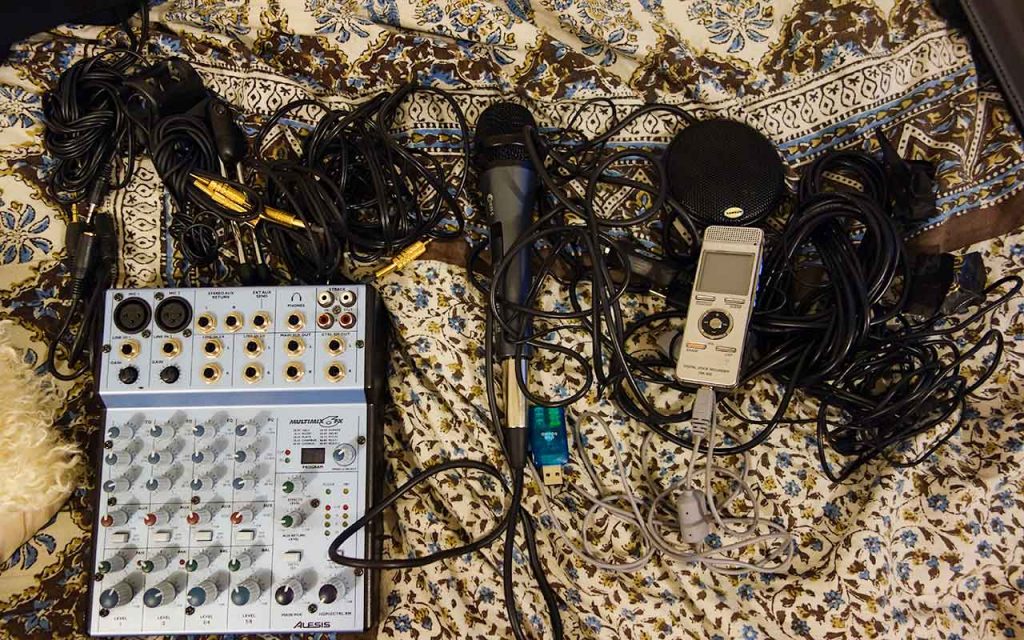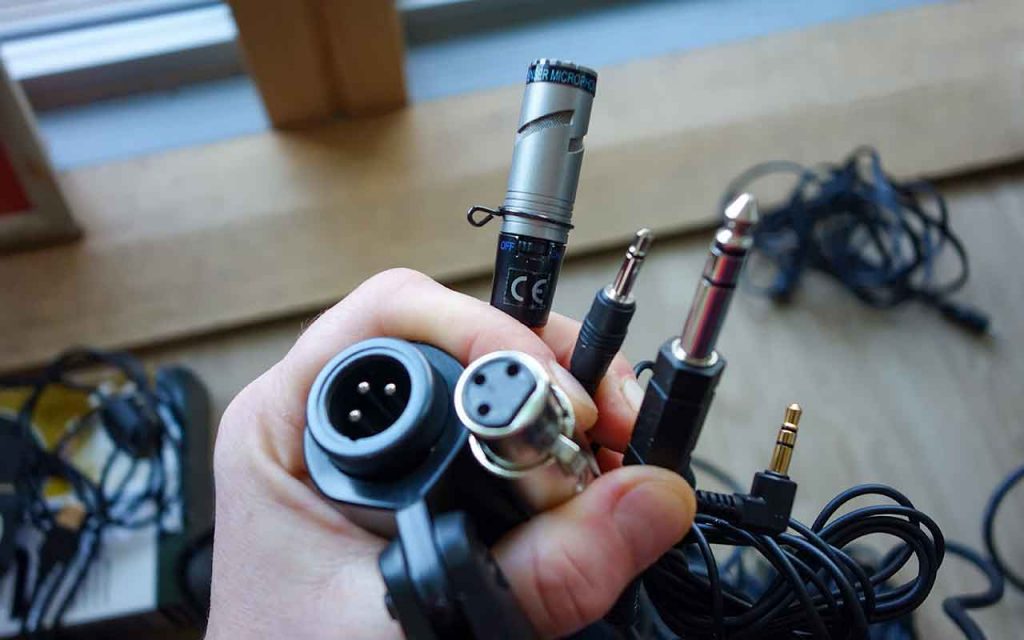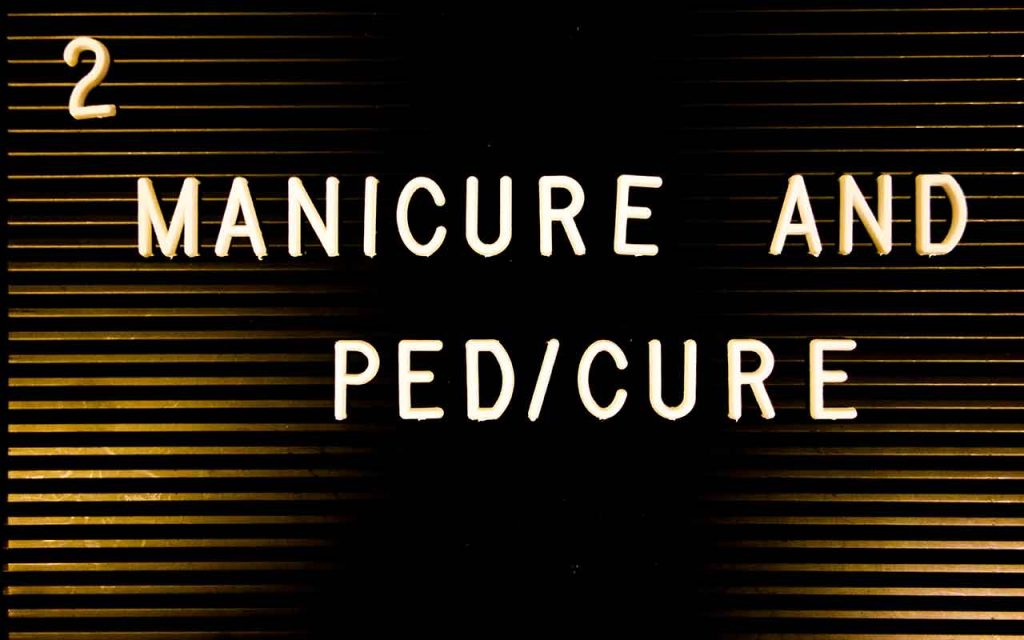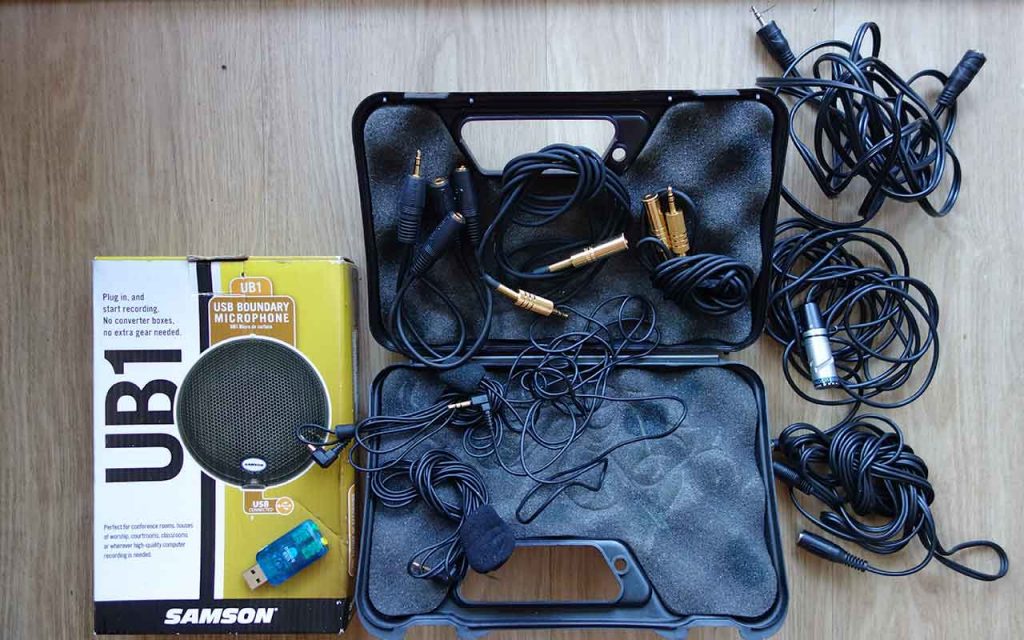1. Learn about podcasts
Understand if it is just an audio recording or whether there is more to it than that. Record a podcast. Edit a podcast. Complete, but not publish, a podcast. A feeling-like-a-dinosaur day
Before
It’s 9.48 am and I’m reporting for duty (I have always wanted to say that). At this stage in the day, I have never listened to a podcast, I have no idea how or where to – broadcast? Post? Publish? – a podcast and I am actually not at all sure what defines a podcast. I’ve always thought of it as YouTube without the videos. But YouTube covers seemingly everything, from short clips to hours of footage, and surely a podcast isn’t that far-reaching? My next thought is that podcasts are a bit like Radio 4 without the live news, so lots of short programmes and interviews and chats within a genre or particular subject matter, eg gardening or comedy as general subjects … my train of thought is going the way of lists and it’s perhaps better not to reveal the full extent of my bewilderment over podcasts and what all the fuss is about.
I’m not a complete dinosaur when it comes to technology, popular culture and social media but, in my defence, I have a job (except in coronavirus times) that requires the use of headphones for most of my working day. I have never particularly liked using headphones anyway, but I now associate them with work and hardly ever use headphones to listen to music, never for radio and never to use my mobile phone.
Today, now 10.00 am, I want to spend the day “working” on finding out the following:
Understanding what defines a podcast as distinct from being a radio show or a video-less YouTube upload;
Know how and where to listen to podcasts;
Find at least one series (series?) that I might listen to regularly;
Record my own podcast (which I have no intention of making public as things currently stand);
Edit my own podcast;
Be able to publish/post/broadcast/upload my own podcast;
And to do all of the above without spending any money.

After
It’s now 7.40 pm. I thought I’d be able to complete this project fairly easily and well within “office hours”. Overall, I would say this has been a fail and, by the afternoon, far more stressful than my average normal-job work day.
But I have learned a lot and feel that this day has prepared me, ish, for the actual creating and recording of at least one episode of a potential podcast. That would seem to justify a second day.
Podcast, noun:
“A digital audio file of speech, music, broadcast material, etc., made available on the internet for downloading to a computer or portable media player; a series of such files, new instalments of which can be received by subscribers automatically.”
Oxford English Dictionary
For mild amusement value, listen to this pronunciation guide, which makes the UK pronunciation sound ludicrously posh.
I quite like the etymology. Pod- from iPod, a proprietary name for an MP3 player. -cast from broadcast and newscast. That all makes sense. I’m labouring this section as it’s the one area I feel I now have some confidence in.
A podcast is like a TV series, having a constant theme or chronological order, like Friends or Cheers. Within a podcast are episodes, which even I now understand, and there are even seasons. A podcast is, obviously, an audio recording but what makes it something more is that it works on the basis of being a subscription via RSS feed, so you can listen to it wherever and whenever you want.
Unlike radio shows, a more obvious comparison than TV, the length can vary from a short one-minute clip to hours of interviews or chat, the frequency can be daily, weekly, monthly or whenever you have time or inclination, the topics can be as broad as we have the imagination and capability to explore and, I suppose like radio, can be just a monologue or a story with multiple characters/speakers.
Apparently, video podcasts are also a thing, but that seems to defeat the purpose of podcasts, being something you can listen to on the move, maybe while doing something else, so it wouldn’t work having a video podcast while driving, for example.
There are a lot of courses (including on lynda.com) about podcasts and information from a commercial, business perspective; podcasts as marketing tools, calling cards, giving credibility, building relationships, etc. I hadn’t really thought about the more business-like side of podcasts, which really does seem to be a massive industry, but that’s not currently my interest in podcasts.
Then I started looking into equipment, where my shaky grasp of podcasts started to crumble.
OMG you need a mic and a digital recorder. I don’t know how I’d failed to think of that. Microphones, I have (for my job). I found my old tape recorders before finally locating a digital recorder, but an old one, a discovery which took up a good 30 minutes of my day. This was the stage in my research when I realised it might not be quite as record-and-go as I expected (though I later established that many people do just opt for the latop mic, but it does show in the quality of the audio, making it far less appealing to continue listening). There has also been mention of (not necessary) mixers. Talk of studios. Trespassing too much into the realms of professionals. I got a bit overwhelmed with cable and equipment talk and had a major lull in enthusiasm for the project during that time.
USB or XLR microphones. Agh. Turns out XLR mics and cables are the ones I use for work, for high quality recording (which I don’t associate with a home podcast set-up). USB mics are deemed fine for novice and solo recordings (including recording someone for an interview or chat via a voice call). I later did an audio test on all my microphones and the XLR mic (which looks like a karaoke mic) was the best, even making my not-good-for-broadcast voice sound slightly better than with the other mics.

I discovered a lot, too much, that I became bogged down in. There are a lot of options for everything: equipment; recording software; apps (for pretty much all stages in the process); editing software; what platforms to choose for listening to podcasts and other things I don’t feel a need to fully comprehend.
As a basic summary, when I spend another day actually recording, editing (less can be more, a concept I intend to embrace; no music or removal of “erm”, “like, you know”), sharing and listening, I will start with the following, in vaguely chronological order:
My best microphone and my old but seemingly fairly good digital recorder;
Skype with Pamela for Skype (to record a conversation with someone over Skype – admittedly this didn’t work earlier but I’m working on it);
Repeated use of (free) www.zamzar.com to convert WMA files (one of many new terms today) to wav files;
A Windows laptop download of Audacity, free editing software (I made a little bit of progress doing very basic cuts and pastes);
Pocket Casts Android App to upload and listen to podcasts (I used Spotify today, which is good for just listening but nothing exciting about the enhancements and layout for the listening/subscribing experience).
Instead of Skype and Pamela, were I ever to want to record a podcast with anyone else not in the same room as me, for better quality I would look into Zencastr and Ringr, the latter which has a free 30-day trial at present and Zencastr’s basic phone recording service is currently free over coronavirus downtime.
In terms of listening to podcasts, I listened to quite a few, trying to vary subject matter, popularity and known versus unknown authors. Unsurprisingly, as with blogs, there is a lot of utter drivel out there. A lot. I only found one that I really enjoyed, Out to Lunch with Jay Rayner. I listened to his chat with Richard E. Grant, and I will listen to other episodes from that podcast (see, I’ve got the terminology now!). No, wait, I will “subscribe” to that podcast.
Project 2 will definitely have to be something less taxing and information-overloady, and I know just how I fancy spending tomorrow (though surely, unlike today’s project, a manicure and pedicure won’t take the whole day).

